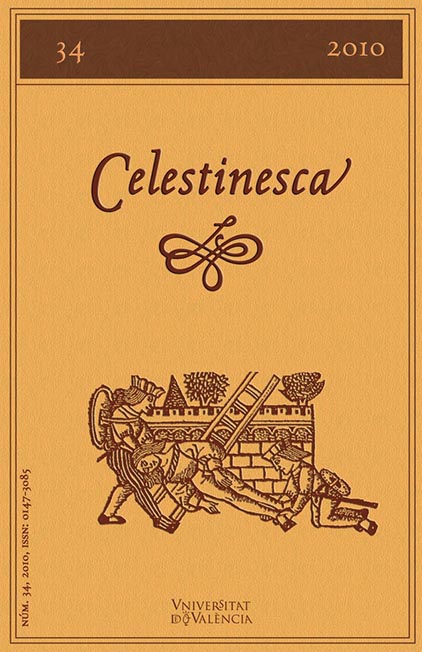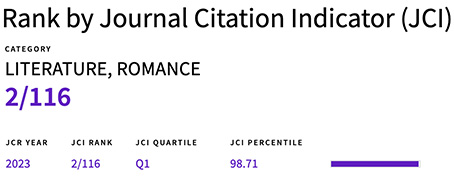Death Gets Personal: Inventing Early Modern Grief in 15th Century Spain
DOI:
https://doi.org/10.7203/Celestinesca.34.20127Keywords:
Celestina, grief, mourning, subjectivity, language, loneliness Abstract
Abstract
This essay examines Pleberio's lament for Melibea in order to reflect upon how grief, as conceived by Rojas, initiates a personalized narrative of substitution that entails an apparent paradox: the deceased serves as the catalyst that triggers this response, and yet is displaced as protagonist in favor of the survivor who becomes the center of this exposition of grief. Pleberio's verbal response to his loss takes the form of a narrative that emphasizes the living “I” rather than the deceased «she», thus reflecting a shift from collective to individualized responses to death. Additionally, Pleberio's lament illustrates how Rojas makes sense of death by proposing a model of grief that not only challenges generic manifestations of mourning but also reveals a turn that invokes the metamorphosis of medieval pain into early modern suffering by reformulating the traditional relationship among the bereaved, loneliness, and language.
 Downloads
Downloads
Downloads
Published
How to Cite
-
Abstract301
-
PDF (Español)239
Issue
Section
License
![]() Celestinesca is committed to the dissemination of knowledge, that is why access to its contents is free and is ruled by a Creative Commons Attribution-NonCommercial-NoDerivatives 4.0 license.
Celestinesca is committed to the dissemination of knowledge, that is why access to its contents is free and is ruled by a Creative Commons Attribution-NonCommercial-NoDerivatives 4.0 license.
Authors retain the rights to their works. Therefore, they can disseminate them and deposit them in the repository, institutional or not, that they wish. However, they are kindly requested to do so by providing the full bibliographic reference and the corresponding DOI.
Celestinesca does not charge authors for submitting, processing, reviewing or publishing their articles.





